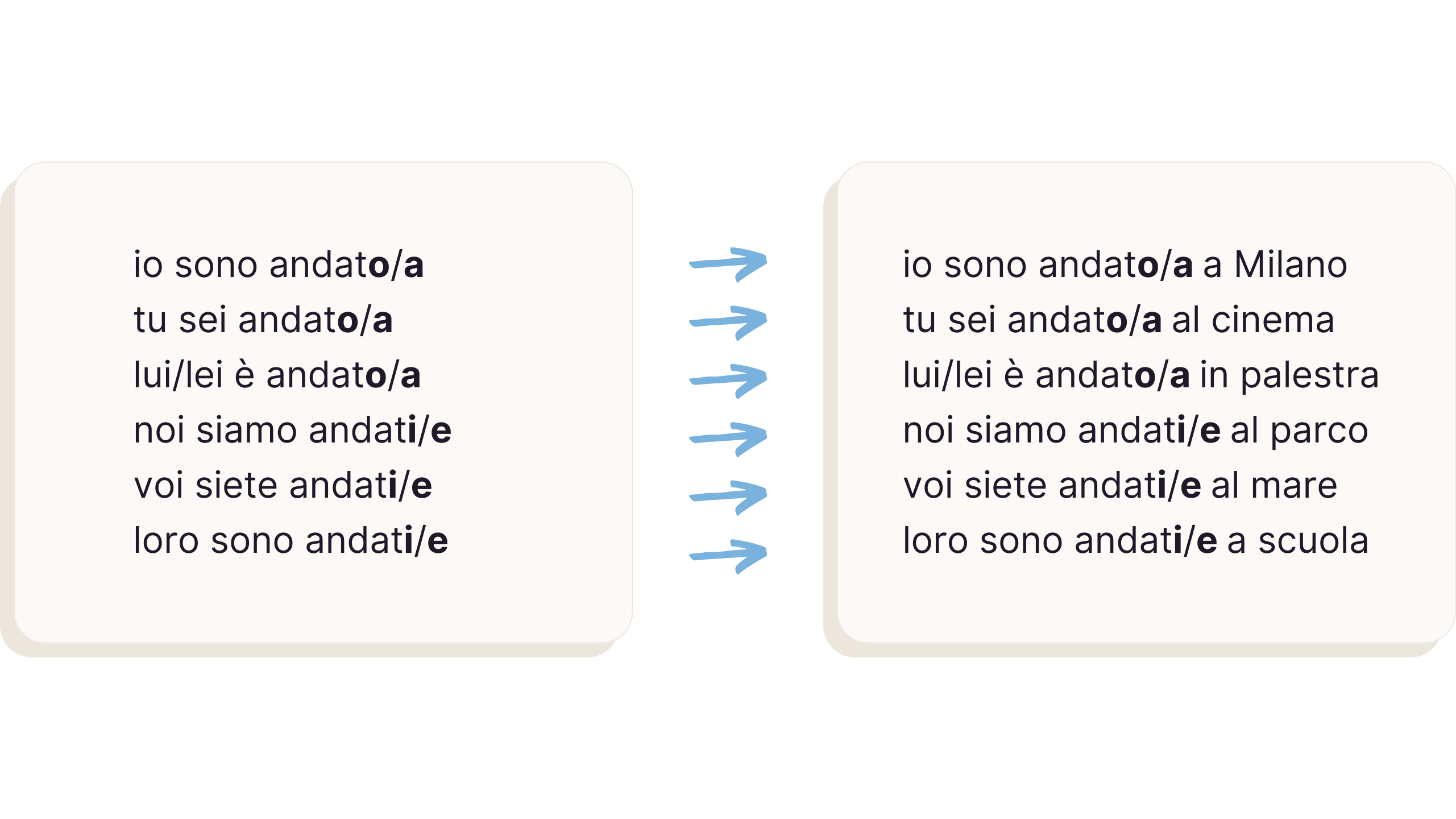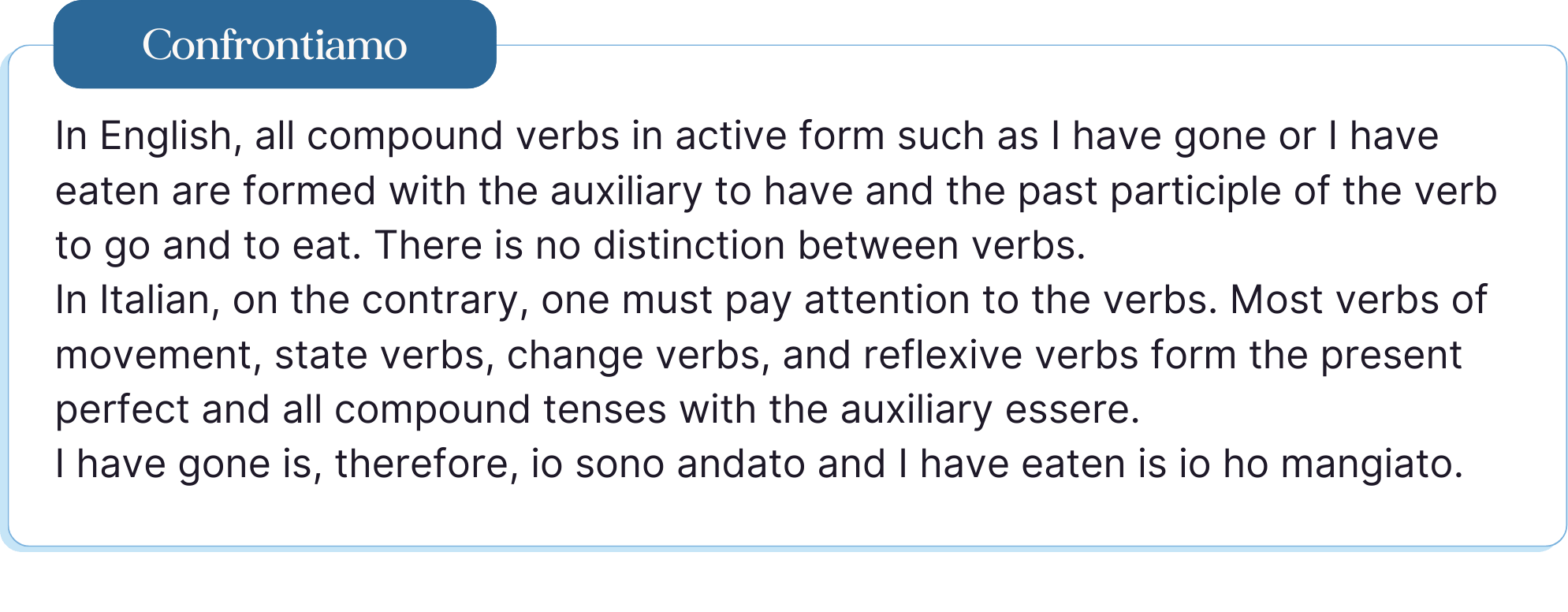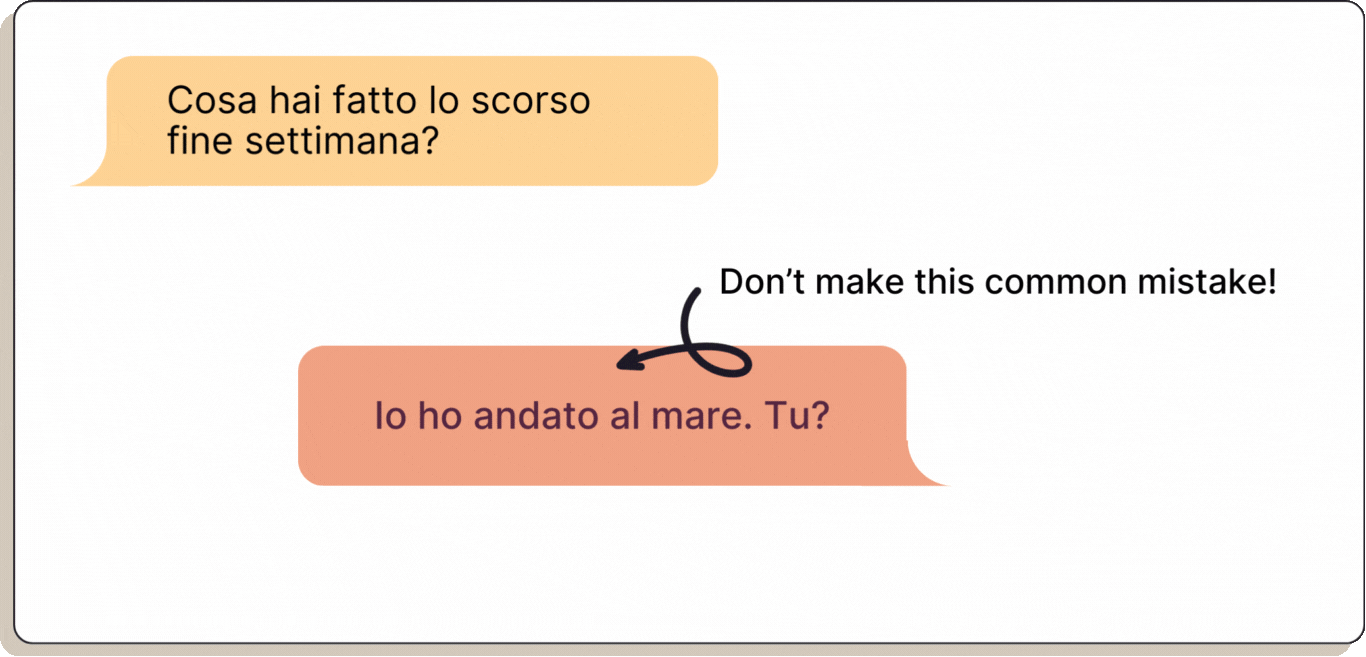Read this short text 👇
Cosa hai fatto il fine settimana scorso?
Ho fatto un giro al lago di Garda. Sono andato a Sirmione e ho visitato il Castello Scaligero e le antiche terme romane. Sono andato anche a Malcesine, dove ho preso la funivia per salire sul Monte Baldo. È stata un’esperienza indimenticabile!
📚 Formation of the passato prossimo of the verb andare
The present perfect of the verb andare is composed of:


Observe these examples:
• Bruno è andato in Spagna.
• Sara è andata al supermercato.
• Alberto e Stefano sono andati a pesca.
• Aldo e Ilaria sono andati a camminare nel bosco.
• Gaia e Giada sono andate in vacanza insieme.


The final vowel of the past participle changes as follows:
-O, when the subject is masculine singular;
-A, when the subject is feminine singular;
-I, when the subject is masculine plural or mixed (if there are multiple subjects of different genders);
-E, when the subject is feminine plural.

In Italian, therefore, it is wrong to say io ho andato or noi abbiamo andato.
In Italian, it is correct to say io sono andato or io sono andata and noi siamo andati or noi siamo andate.


✍️ Let's fix the mistake
Cosa hai fatto il fine settimana scorso?
Ho fatto un giro al lago di Garda. Ho andato Sono andato a Sirmione e ho visitato il Castello Scaligero e le antiche terme romane. Ho andato Sono andato anche a Malcesine, dove ho preso la funivia per salire sul Monte Baldo. È stata un’esperienza indimenticabile!

🏷️ Similar verbs
There are other verbs that follow the same rule as andare and form the present perfect and all compound tenses with the auxiliary essere.
The most important verbs are:
→ Verb essere
Example: Sono stato in campeggio per tutto il mese di luglio.

→ Most movement verbs like partire, uscire, venire, entrare, (ri)tornare, arrivare, cadere
Examples:
Sono tornato dalle vacanze la scorsa settimana.
Sono arrivato puntuale all'appuntamento di mercoledì.

→ State verbs like stare, rimanere, restare.
Example:
Ieri sono rimasto in ufficio fino a tardi.

→ Change verbs or those referring to the life cycle like vivere, nascere, crescere, diventare, morire.
Example:
Caravaggio è nato nel 1571 a Milano.
ⓘ Among these verbs, the verb vivere is an exception that forms the present perfect also with the auxiliary avere → Io sono vissuto a Modena per cinque anni. / Io ho vissuto a Modena per cinque anni.

→ Reflexive verbs like svegliarsi, alzarsi, vestirsi.
Example:
Oggi mi sono svegliata alle 5:30.



